TUESDAY EDITORIAL
The murder of Abahlali’s Ayanda Ngila is an injury to us all

The murder of young activist Ayanda Ngila reminds us, again, that there are two worlds in South Africa, including for civil society organisations. In one world, mainly the formal suburbs and business and academic districts of big cities, there is respect for the right to protest and campaign for a cause. In the other world there is the rule of violence. We cannot allow this to continue. All good people in society should wake up to the society we are becoming. And act.
The cold-blooded murder of Abahlali baseMjondolo leader Ayanda Ngila, while he was fixing water pipes to a food garden in the eKhanana Commune near Durban, is an assault on South Africa’s democracy, Constitution and on every one of us. It calls for statements and acts of solidarity not only to demand justice for Ayanda, but in support of the rights of South Africa’s poor and marginalised to organise, protest and take actions (including occupying land) in support of their fundamental rights.
On Sunday, Abahlali leader S’bu Zikode told the media that 20 of the movement’s activists have been killed in recent years. (Watch the interview here). The night before he spoke, yet another supporter, Siyabonga Manqele, was murdered, this time Abahlali alleges by masked policemen during a raid on the home of Abahlali member Thandeka Sithunsa.
According to a statement by Abahlali, during this raid on the “eNkanini Occupation”:
“The number plates had been removed from the police cars, and their faces were masked. They had someone with them, also masked, who took them to particular homes. The residents report that they thought that the police officers were not local, and that they heard them saying that they had a list of 10 people to arrest.”
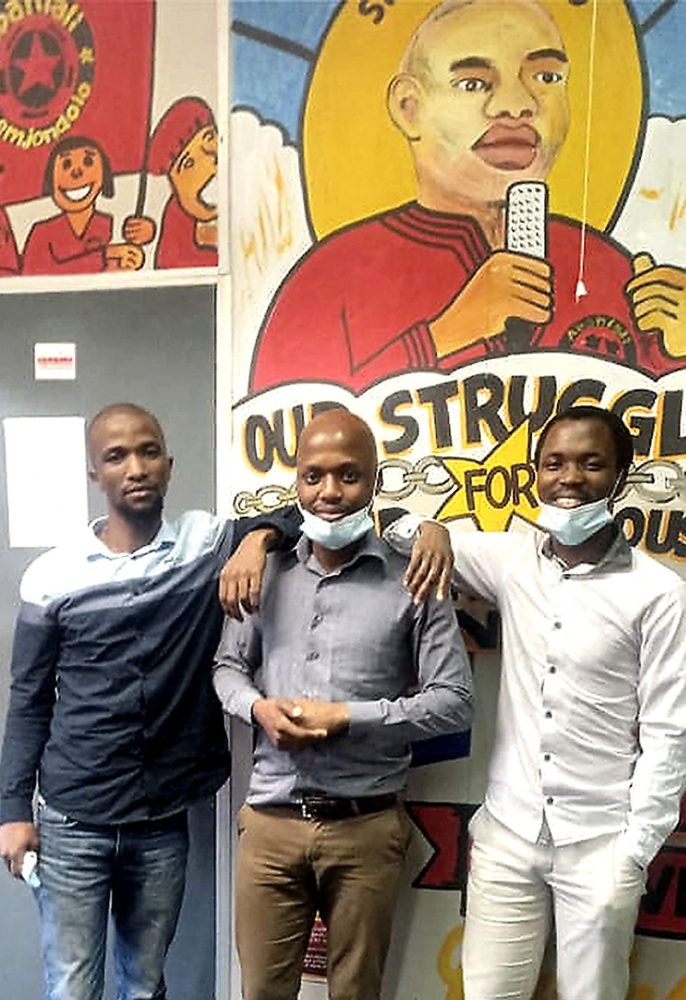
From left: All charges were dropped against Landu Tshazi, Ayanda Ngila and Lindokuhle Mnguni, who were released from the notorious Westville Prison after more than six months. They had been arrested as part of the long-standing and often violent attempt to crush the eKhanana occupation in Cato Manor by the eThekwini Municipality, the police and the local ANC – all working with people aiming to seize control of communally managed land for the purposes of making private profit. (Photo: Supplied)
These allegations bear out a statement by former Constitutional Court judge Zak Yacoob who told mourners that Ayanda is “now with many, many others whose lives were taken.” Yacoob mentioned Chris Hani and Victoria and Griffiths Mxenge, but added that “their lives were taken by white people; our lives are now being taken by our people”.
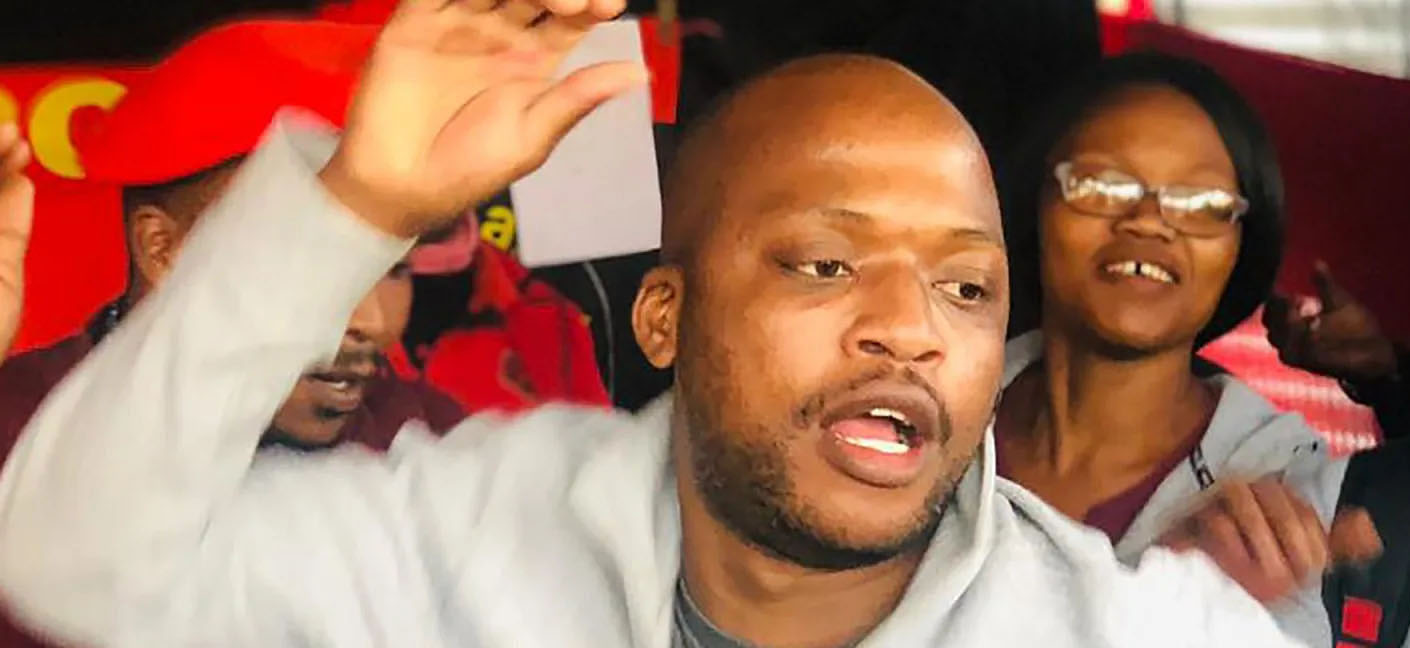
The space in which Ayanda Ngila and many others have lost their lives is controlled by politically connected gangsters, who operate by rule of gun not rule of law. (Photo: Supplied)
Abahlali’s “crime” is taking direct action to ensure people’s rights to housing, land, food and dignity. It acts where national, provincial and local governments have unlawfully failed to fulfil their constitutional responsibilities. It refuses to wait for charity for poor people, but instead is an organisation of poor people that unapologetically claims the freedom that is meant to belong to all of us.
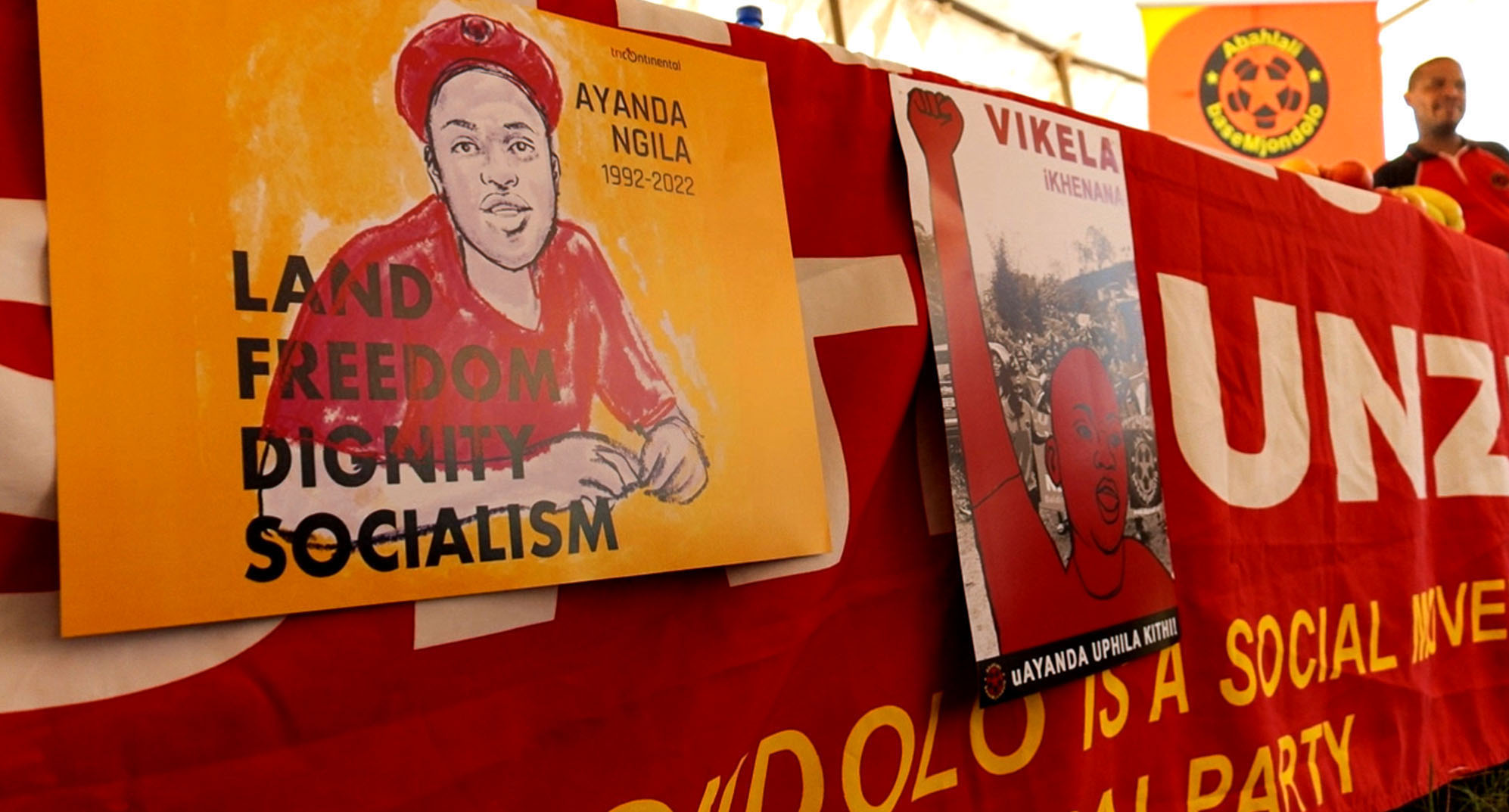
A memorial service for Ayanda Ngila was held on 13 March 2022. (Photo: Siya Mbele)
In the words of Abahlali deputy president Mqapheli Bonono: “We feel that we don’t count in this country… No one is protecting these children who are trying to survive. We have to continue because we have nowhere else to go. People in eKhanana are merely trying to sustain themselves while we are facing these attacks from the local ANC, KwaKito police station and even the municipality.”
However, as continually pointed out by S’bu Zikode, Abahlali is a disciplined and non-violent organisation, whose claims to land have been recognised by the courts in judgments.
But surely rights to food, land, housing and dignity are moral and not just legal issues. Surely rights must be justiciable on the streets, not just through the courts? In the words of health activist Paul Farmer: “The poverty of the poor is not a call to generous relief action, but a demand that we go and build a different social order.”
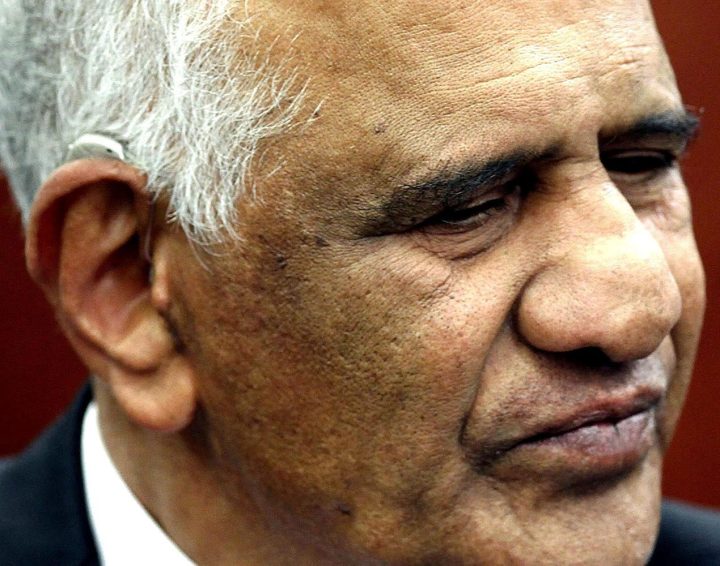
Former Constitutional Court judge Zak Yacoob said Ayanda Ngila is ‘now with many, many others whose lives were taken’. (Photo: Gallo Images / The Times / Moeletsi Mabe)
This is what Abahlali’s direct activism challenges people to think about. This is the lesson we learnt from the Treatment Action Campaign (TAC) and other social movements, who even while respecting the law, were willing to engage in acts of peaceful civil disobedience when people’s dignity and lives were at stake.
Two worlds: Safe and violent civic spaces
The murder of Ayanda Ngila reminds us, again, that there are two worlds in South Africa, including two worlds for civil society organisations.
In one world, mainly the formal suburbs and business and academic districts of big cities, there is respect for the right to protest and campaign for a cause. NGOs operate largely without hindrance from safe and comfortable offices in areas like Braamfontein in Johannesburg.
Their “civic space” is respected and protected by the law and the media.
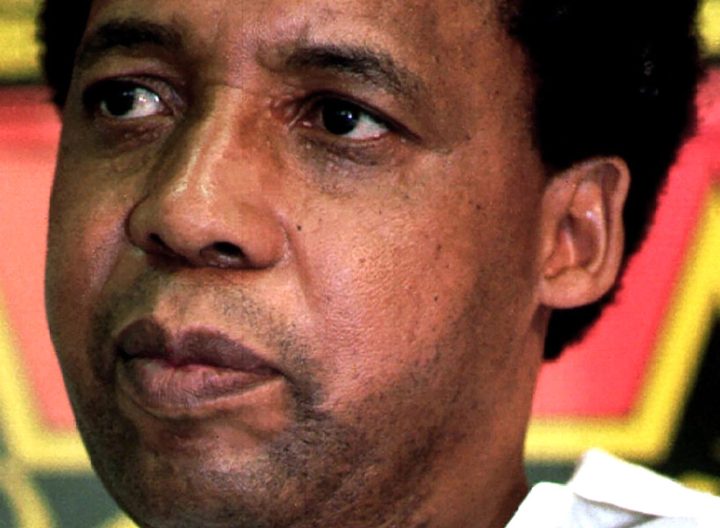
Former Constitutional Court judge Zak Yacoob said Chris Hani’s life was ‘taken by white people; our lives are now being taken by our people’. (Photo: Gallo Images / Media24 Newspaper Archives
In fact, in the very week Ayanda was killed, the Constitutional Court handed down an important judgment affirming the right to protest (read about it here).
But there is another more populous world, found on the other side of unresolved apartheid spatial divisions, where activists are threatened and, increasingly, murdered. This is the world where poor people live, where it seems almost to be expected that people will endure indignity and death.
This is the space occupied by Abahlali, by the Amadiba Crisis Committee, by environmental and anti-mining activists, and anti-xenophobia activists who live in poor communities. This is the space in which Ayanda Ngila, Fikile Ntshangase, “Bazooka” Radebe and many others have lost their lives.
This space is controlled by politically connected gangsters, who operate by rule of gun not rule of law.
One wonders whether it is because Abahlali is made up of shack dwellers on the margins of society that our society overlooks the murder of 20 human rights activists? What would the response be if those being targeted worked for a university think-tank or a well-funded NGO?
In December 2021, South Africa was downgraded to “obstructed” by Civicus Monitor, a global research collaboration that rates and tracks fundamental freedoms in 197 countries and territories. According to their report, People Power Under Attack 2021, “the violent dispersal of protesters, deterioration of LGBTQI+ rights, and attacks on public figures who raise questions about accountability, led to the downgrade”.
Civicus says: “This is the third-worst rating that the global index can give a country.”
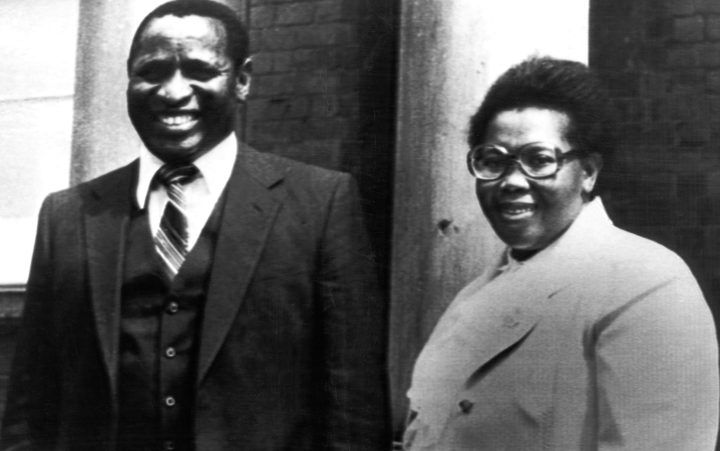
The last photo taken of Griffiths and Victoria Mxenge, in February 1981. (Photo: Gallo Images / Sunday Times Archive)
While the South African media and business community gets fixated by downgradings by ratings agencies, it seems less concerned by how our human rights record is viewed. The downgrading passed almost unnoticed. Yet, Ayanda’s murder shows that the downgrading is for good reason. The notion that South Africa is a safe space for civil society and human rights activism is wrong. Human rights protection must be measured by the experience of the most vulnerable among us, not by the activist elite space. Here civic space will be found to be not much better than in Harare, Maputo or Caracas.
Since Ayanda’s murder there has been an outpouring of messages of support nationally and internationally. But it should also be a wake-up call. Put another way, if all of civil society does not do more to work hand in hand with poor communities in struggles for land, health, education and dignity, this space will be captured by gangsters. It will be surrendered to criminals in the ANC and groups like Operation Dudula who use intimidation and violence on behalf of covert political agendas.
It will become a no-go area for civil society and the constitutional right to protest.
Ayanda Ngila’s murder should therefore be a turning point.
These are the reasons we should honour Ayanda Ngila and all find ways to show solidarity with the vision and activities of Abahlali baseMjondolo. DM/MC
Read more about Abahlali baseMjondolo and support their campaigns here. Read a statement on the background to the conflict over the eKhanana Commune from SERI here. Read a report on the Memorial service here.




















 Become an Insider
Become an Insider
Comments - Please login in order to comment.